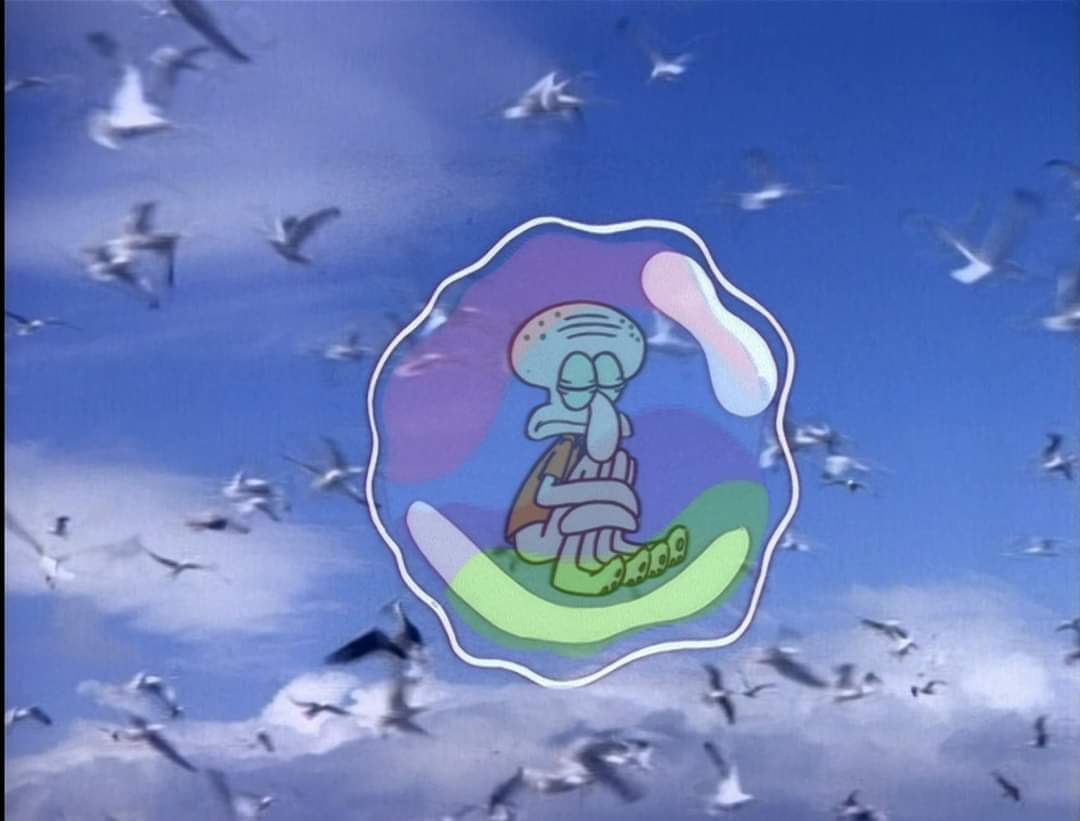Fun fact: someone actually did it
incredible engineering feat !
this will definitely fulfill someone’s kink.
I was going to link it if no one else had. Glad I wasn’t the only one that recalled that lol
Damn that was impressive! Also, I’ll have to let my little brother know that if he keeps beating his meat so much he might accidentally cook it.
Let’s assume the chicken has to reach a temperature of 205C (400F) for us to consider it cooked.
Remind me never to let this guy cook for me.
😭 chicken dry as a bone. I think they were conflating the oven temp with the desired internal temp (165 F is the safe minumum for poultry for the curious, so 400 F would be well done to say the least)
Dry as a bone would be an understatement, it would be charcoal in a puddle of fat at that temp
“It’s a single-celled protein combined with synthetic aminos, vitamins, and minerals. Everything the body needs.”
morpheus, that you?
Tbf, he doesn’t account for the loss of heat at all, so it’s good that he’s taking a big margin.
I think the phase change costs of the water content will also be a significant factor that isn’t included.
Good point
Oh, in that case it only needs 9,213 slaps (delivered near-simultaneously) or a single slap at 1,490 mph.
“Consecutive normal punches”
Also why is it starting off frozen
Julia Child did some 400° cooking, for a science-oriented TV series called “The Ring of Truth”: https://www.youtube.com/watch?v=WQ3mjb9BSaU&t=850s
Later in the episode, she got to cook a diamond to amorphous carbon. “I’ll remember that recipe – one carat diamond, two and a half hours, three thousand degrees”: https://www.youtube.com/watch?v=WQ3mjb9BSaU&t=1458sHis roasts be literally disgusting. He’s off by 2x. Does that mean I only have to slap the chicken at about 2k mph to cook it like a normal person.
You can’t cook chicken with math, it’s out of this guys wheelhouse
What I learned from this is never let a physics major cook you dinner, unless you want charcoal for chicken (200C !?!)
Yeah 60c is done for chicken. That’s where meat goes from pink to white. It takes 18 min to kill dangerous food bacteria at that temp.
And they didn’t defrost it first 🫠
0 C wouldn’t quite be frozen solid for chicken since it’s not pure water. According to a quick search, chicken (unbrined) freezes at -3 C. So technically it is defrosted, but it should start out closer to 10 C for good results.
I was gonna say to start laying off when it gets to 165F, I don’t think residual heat will help in this case 😁
Luckily, it’s a linear relationship and they gave us the temp change per slap. So, if we assume the chicken has thawed in the fridge (40°F) and we want to reach 165°F for food safety, we only need
(165 - 40)°F * (5°C / 9°F) / (0.0089 °C / slap) = 7803 slapsAlthough, to be honest I think this would only work for a spherical chicken in a vacuum, as otherwise you’d be losing too much heat between slaps. And even in a vacuum, you’d lose some heat via radiation… So really, you should stick a temperature probe in there and just keep slapping until it reaches 165°F. Don’t even bother counting.
Sorry for the silly units, I only know food safety temperatures off the top of my head in °F.
don’t even bother counting.
Wish I had know this tip earlier. Got to five thousand something, lost count and had to start over.
Sorry, i guess i kinda buried the lede there, lol
But it only needs to reach 165°F, about 74°C.
Basically every food package says so.Dude is cooking chickcoal
Now that we’ve discovered how to slap coal into existence, how much force would it take to turn a frozen Butterball into a diamond?
It’ll 100% be chickcoal since the hand will be pushing Mach 5. Pretty sure the plasma will give it a nice sear.
This is correct; always cook to temp.
Don’t forget, the chicken is frozen, so you also have to take into account the latent heat of fusion to melt the chicken before you can raise the temperature
This calculation also assumes that this is an inelastic collision where all the energy is absorbed into the chicken and not into your hand or into the air as sound or other kinetic energy.
Further the chicken is frozen solid, and, presumably, your hand is not. Of the two objects in this collision that could deform inelasticity and absorb the larger fraction of the energy, my money would be on the 0.4 kg slab of raw meat rather than the 1kg frozen billiard ball.
One must also consider the thermal conduction of the chicken. Slapping it, either once or multiple times, on a single area will impart energy to that area, raising the temperature there, but it will take time for that to disperse throughout the fowl. Thus will inevitably lead to the slapped area/areas being overcooked and the rest being dangerously undercooked. Losses to the environment must additionally be taken into account unless sufficient insulation is employed to mitigate this.
So would you say that a rotisserie slapping technique would optimal in this scenario?
Yes, I think the chicken would need to be rotating, you should use both hands to spread the warmed area, and be prepared to administer more slaps than were calculated.
It’s optimal for your mom!
Since we’re being pedantic, the feeezing point of unbrined chicken is -3 C. Most meats are not frozen at exactly 0 C since the water contained in the cells is far from pure.
But yeah, slapping will be a super lossy process and this analysis will be off by quite a bit.
Touché!
I wonder if there’d be any fractional freezing at 0C 🤔
Great… now I’m imagining raw chichen slushie 🤮
Isn’t 1600 m/s greater than the speed of sound? That sonic boom is gonna mess up the kitchen, if not the hand.
205°C? You’re slapping your chicken too long, son. Your mother and I are worried.
To be clear, the slapping would have to be done in one single second to account for heat loss to environment.
What if you wrap it in a blanket?
It’s expected there will be some heat loss over time in any scenario, I’m just explaining that the exact numbers to reach 200C chicken (way overcooked) in this very specific example only work if it happens near instantly.
You can still cook it over time, easily, just with different numbers than this example.
I didn’t check the calculation, but I guess it assumes perfect conversion of motion to heat. But it’s good to know that if you can get a perfectly static chicken, you can hypersonic-slap it cooked.
There was a viral YouTube video of doing exactly this a few years back.
Removed by mod
One thing to note, actually cooking something requires an application of heat over time. Instantaneous heat transfer will not cook, it will usually just burn.
Some people say you can use a nuke to cook a pizza if you put it in the right spot, but the same problem would apply.
Related, some guy did actually slap a chicken into being cooked. It was predictably disgusting:
It is about 1:06 when I first heard him call it a meat beater.
He needed a faster meat better. Bruva, we are right here!
Came here to post that video It’s such a great watch
I was hungry
not anymore
I’m hungrier because I put so many calories into slapping.
How many though? Could please someone think of the math? 😭
About 132 kcal, if your calorie to chicken heat transfer is 100% efficient.
For the 23k average slaps or the one with hypersonic speed?
They work out to the same total amount of energy.
Including acceleration and deceleration? Hm
The kinetic energy of an object is equal to the energy that was required to accelerate it.
When Martha from accounting last asked me what my plans were for that night, I told her I was going to slap my chicken.
She won’t look me in the eye any more.
Yeah, I also don’t talk with people who engage in animal cruelty
That’s assuming an isentropic chicken though. You need even more slaps to make up for the heat loss to the environment.
Why isn’t it a concern what slapping at this speed does to your hand/arm?
Because we are men, and men feel no pain when we slap things.
This is why we slap each other on the back after losses in sports, and why pimpin ain’t easy.
Fun fact, 165F is often parroted for cooking chicken, but I urge everyone to go lower. 155-160F results in much juicier chicken. 165F corresponds to instantaneously killing all bacteria. 155F is about 60s, and 160F is 15s.
And for even juicier chicken, directly inject cranberry juice using a needle and syringe. You can use other juices, but IMO, cranberry goes best with chicken.
For outrageously juicy chicken, sous vide to 155-160F directly in cranberry juice (no vacuum bag). This may bring the chicken beyond many people’s juicy limits, so I suggest trying the other two recipes first to gauge your personally acceptable limit of juiciness.
This is the winner
At 400F it would no longer be a chicken but a pile of glowing cinders. A chicken is cooked at 165F.












